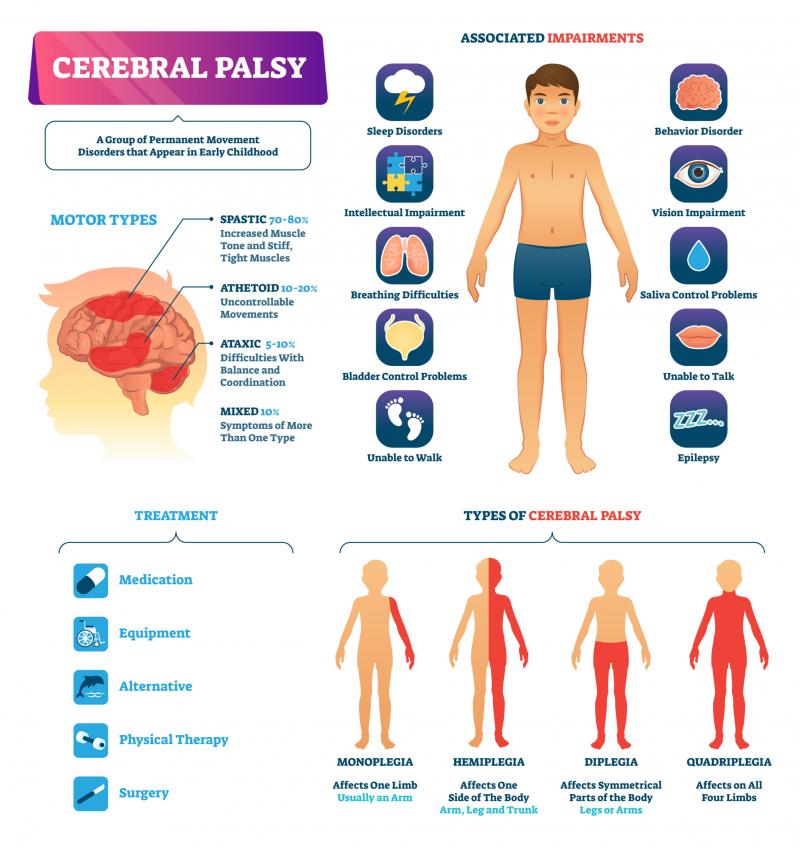CP

Cerebral palsy is a group of disorders that affect movement and muscle tone or posture. It's caused by damage that occurs to the immature, developing brain, most often before birth.
Signs and symptoms appear during infancy or preschool years. In general, cerebral palsy causes impaired movement associated with exaggerated reflexes, floppiness or spasticity of the limbs and trunk, unusual posture, involuntary movements, unsteady walking, or some combination of these.
People with cerebral palsy can have problems swallowing and commonly have eye muscle imbalance, in which the eyes don't focus on the same object. They also might have reduced range of motion at various joints of their bodies due to muscle stiffness.
The cause of cerebral palsy and its effect on function vary greatly. Some people with cerebral palsy can walk; others need assistance. Some people have intellectual disabilities, but others do not. Epilepsy, blindness or deafness also might be present. Cerebral palsy is a lifelong disorder. There is no cure, but treatments can help improve function.

